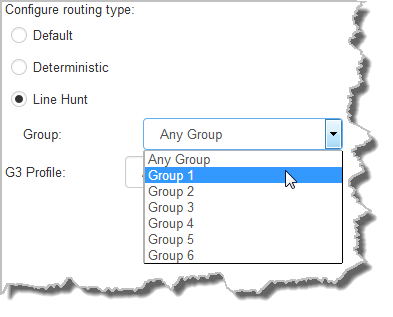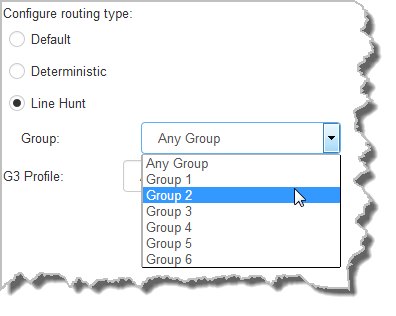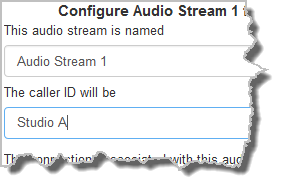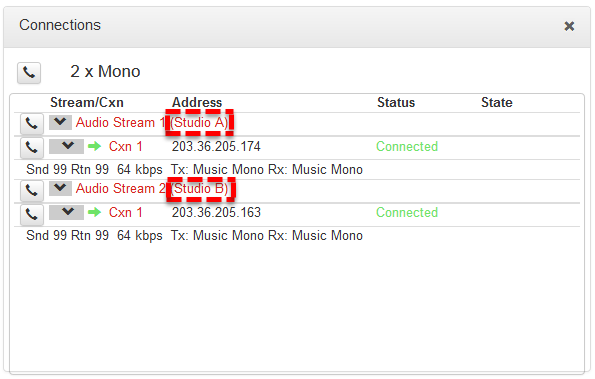
The codec supports line hunt call answering, whereby you can create line hunt groups for multiple incoming callers on a first come, first served basis. This is ideal for separating groups of inputs and outputs between different studios or stations.
As an example, when creating a program which supports connecting six mono audio streams, select Line Hunt as the routing type. Then select Group 1 for the first three audio streams, to route outgoing and incoming calls via inputs and outputs 1 to 3 of a codec at the studio. These physical inputs and outputs on the codec can be routed to a particular studio or station.

For the next three audio streams, select Group 2 to route outgoing and incoming calls via inputs and outputs 4 to 6. These physical inputs and outputs on the codec can be routed to a different studio or station.

Incoming Caller ID
Tieline codecs also support incoming caller IDs, so you can uniquely identify codecs or Report-IT users when they call in. This is particularly useful for identifying inbound callers when using line hunt answering mode.

Any Tieline G5 codec dialing into a codec can display a designated Caller ID in the Connection panel. In the following example, Studio A and Studio B have called into the codec using a specific caller ID, which is displayed next to the stream name.

